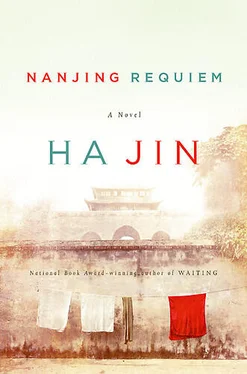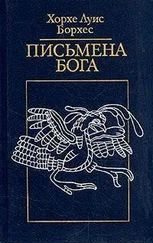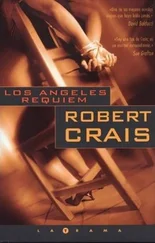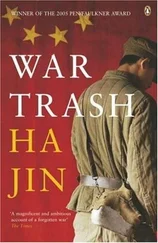In private, one told me that the torturers had often tied him to a bench, then stacked bricks on his feet and filled him with water mixed with chili powder until his stomach was about to burst. At first he denied all of the charges, but later he confessed to whatever crime they said he’d committed. He even said that he had helped John Magee and Holly Thornton embezzle relief funds and had single-handedly stolen a military truck, though he didn’t know how to drive. “I just didn’t want to be killed by those savages,” he said, and shook his head, which was afflicted with favus and reminded me of a molting bird.
“Did they believe what you told them?” I asked him.
“Perhaps not. They once said I lied to them, so they punched and kicked me till I passed out.”
“Who beat you, Japanese or Chinese?”
“Some Chinese running dogs man the torture chamber. Every now and then one or two Japanese officers showed up too.”
No rally would be allowed on the emperor’s birthday except for those organized officially. To keep the girls preoccupied, Minnie declared April 29 a big cleaning day. Then the Autonomous City Government demanded that we send one hundred people downtown to take part in the celebration of the emperor’s birthday. They didn’t specify that the participants from our campus must be young students, so Minnie believed we should pick a hundred women from the Homecraft School. Mrs. Dennison objected, saying they were not students and must not represent Jinling College. She insisted on sending middle schoolers instead.
We discussed this, and everyone, including the American teachers, supported Minnie’s idea, because we knew some of the girls were loose cannons and might take the public celebration as an insult. If some of them started an anti-Japanese chant or song, it would get us into deep water. What’s more, Alice and Donna had informed us that some young girls were planning to demonstrate against the Japanese occupation. We didn’t want to kindle their anger by sending them to the official rally, so we chose the women from the Homecraft School.
As we were setting out the next morning, bearing a large banner that displayed the characters JINLING WOMEN’S COLLEGE, Mrs. Dennison blocked the procession outside the front gate. She said to Minnie, “I won’t let you bear our flag, because these are not students of our college.”
Minnie grimaced but caved in. “Okay, we won’t carry it, then.”
So we continued downtown without the flag, while Mrs. Dennison held it with both hands, standing there alone and watching us march away. The white silk flapped a little, shielding a part of her thin shoulder. It was almost midmorning, the sun already high and hot. The women all knew we were going to demonstrate in honor of Emperor Hirohito, so they looked dejected and walked silently, some hanging their heads low.
In the city, martial law was already in force to prevent protests and to control drunken soldiers. We stood in the plaza before the city hall, each given a tiny sun-disk flag made of paper. The celebration started with a review of Japanese troops — one thousand cavalry, three columns of mountain guns, and a regiment of infantry marched past the platform near the templelike building with three tiers of flying eaves. Every officer raised a gleaming sword, its back against his collarbone, to lead his unit forward. The band was blasting out “Japan’s Army.” As the troops passed the platform, they shouted, “Long live the emperor!” and “Japan must conquer Asia!” and “Wipe out our enemies!” On the platform stood two Japanese generals in high boots and some Chinese officials, including Jimmy Pan, a tall, intelligent-looking man despite his slightly lopsided eyes. Pan always claimed that he’d taken the office of vice mayor because it was the only way he could help protect the local citizens’ interests, but the Nationalist government had already set the price of two thousand yuan on his head. Some of the puppet officials on the stage kept their eyes on the floor throughout the ceremony, though they applauded from time to time.
One such official, Yinmin Feng, a scraggy man with jug ears who had earned a master’s in archaeology from Tokyo University, gave a short speech, which, despite its brevity, was empty prattle. He praised the Japanese authorities for their efforts to restore order and normalcy in the city. He also insisted that all Chinese support “the New Order of East Asia.” He stepped down from the rostrum in less than ten minutes, after shouting “Heaven bless the emperor!” and “Long live the cooperation between Japan and China!” Then the Nanjing garrison commander, Major General Amaya, delivered a speech through an interpreter, in which he listed several causes for the suffering the Chinese here had gone through. Among them two were primary. First, the Chinese forces were responsible for the devastation of Nanjing, because they had resisted the Imperial Army, which was renowned for its bravery and invincibility. And once defeated, the Chinese soldiers had disappeared among the civilians, exploiting women and children as camouflage. That was very unprofessional. Also, Chiang Kai-shek had instilled in the entire population so much hatred for the great Japanese nation that most civilians became hostile to the Imperial Army, refusing to cooperate or give provisions. Worse yet, there were snipers everywhere, who mainly targeted Japanese officers; consequently, many commanders had to wear the uniforms of the rank and file to disguise themselves. When Nanjing was taken, the army had no alternative but to “mop up” all the stragglers and deserted soldiers. The second cause was that some foreigners from a certain country — namely the United States — remained here, and their presence emboldened the Chinese to oppose the victorious troops. Those foreigners actually provoked the Japanese soldiers to break rules and vent their frustration on civilians, so the Westerners were the real troublemakers for China and should be repatriated.
The pudgy general wore circular glasses and two rows of ribbons on his chest. As he was reading from the written speech, his eyes were so close to the paper and the microphone that the audience could hardly catch a glimpse of his doughy face. What’s worse, his voice was drowned out by the interpreter, a young dandy with slick hair and powdered cheeks, whose delivery in Mandarin was much more impressive.
After the speeches there was a large demonstration against communism, which the women from our school didn’t join. We just stood there as spectators. Even Chiang Kai-shek was labeled an arch-Communist who’d taken up the hammer and sickle of the Russians, and some placards with his portrait crossed out in red ink were raised among the civilians who lined up in front of the platform.
As soon as the celebration was over, Minnie and I led our students back to campus. John Allison from the U.S. embassy telephoned Jinling and urged the American women to be vigilant and to avoid the downtown area for a few days.
We wouldn’t let any students go there either, and instead held a service late in the afternoon. More than three hundred people gathered in the chapel, and some of them were girls from the middle school. The service started with the hymn “He Leadeth Me.” Next was a prayer led by Minnie — for peace in Asia and Europe and for the reduction of the suffering inflicted on the Chinese. Then Lewis Smythe preached his last sermon here, as he was leaving for Chengdu in two days. He wore a gray tunic, which made the narrowness of his shoulders more pronounced. He read out Matthew 5:11–12 and spoke about slander against the righteous as an indication of their virtue. He declared in a cadenced voice, “True Christians should rejoice when evildoers vilify them, for the Lord says that you shall be hated by men for his name’s sake. The vilification is proof that you have been doing something right. In fact, all the wicked tongues cannot really discredit you. What they can accomplish is just an emphatic verification of your righteousness. Let the vilifiers wag their tongues and waste their breath while we do our work with a clear conscience.” He went on to speak about God as the only qualified judge for the upstanding who would always make fair judgments.
Читать дальше











